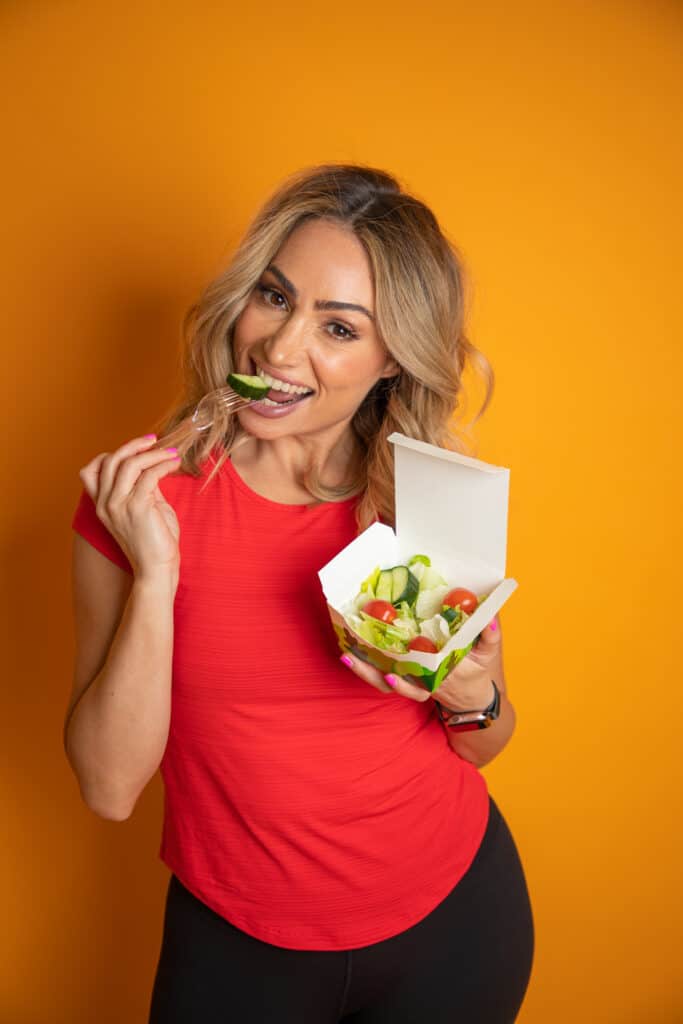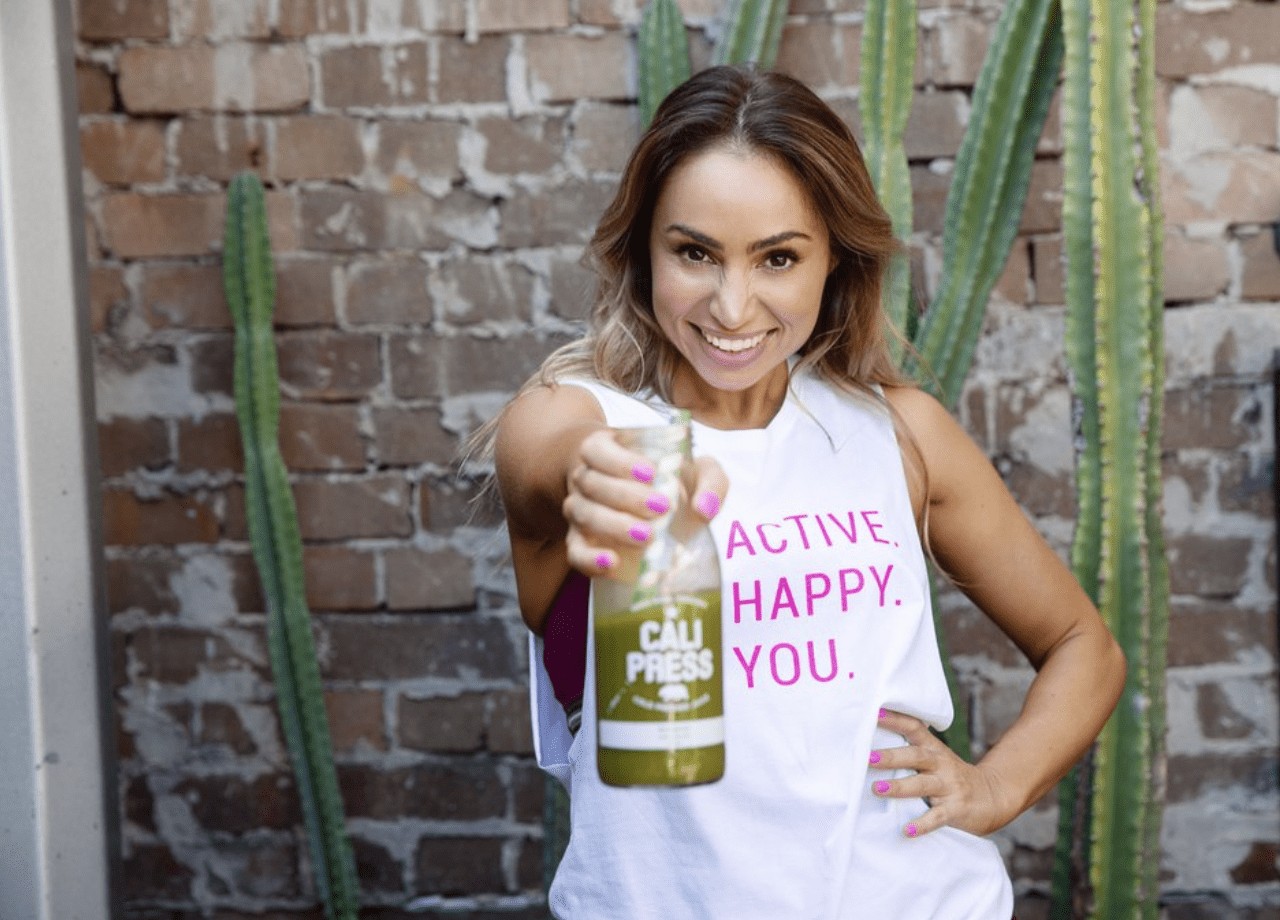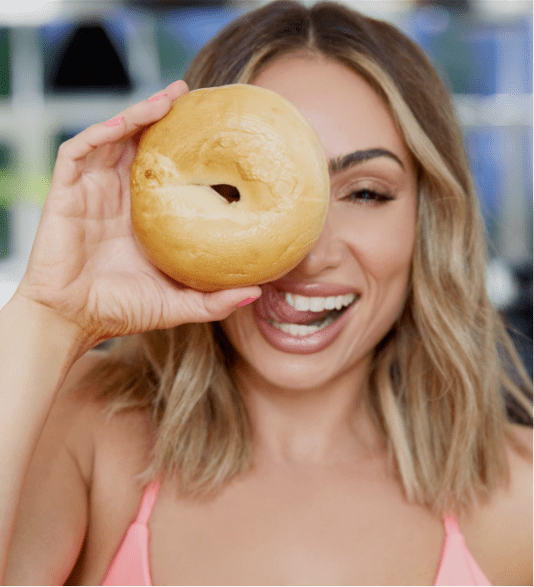 Meals
read more >
Meals
read more >

Do Fad Diets Work?
So many of our community members ask me what diet I think is the best out there for weight loss?
So many of our community members ask me what diet I think is the best out there for weight loss?
Well, the first thing I usually say, is that you want to lose fat, not just weight. The goal of any program is to maintain as much muscle as possible, whilst still shredding those fat pounds away. Muscle not only keeps you strong and healthy, it is vital in maximising your fat loss as well. Maybe we’ll delve into that in another blog post.
But back to diet, with countless fads currently in fashion, it’s easy to feel lost! It honestly makes me dizzy! Being a fitness professional for many years makes me no expert about all things diet and nutrition, but I’ve seen what works for my clients and I know what works for me.
Now before I even begin, if you take away anything from this article, let it be this: I believe one concept counts above all else:
CONSISTENCY: In my mind, the biggest problem with “diets” is that it implies it’s something done in the short term to produce quick results. Don’t get me wrong, quick results can and have happened. Do anything drastic enough and it will cause change. But can you turn this into long term lifestyle commitment? Often the answer is no and this is where my gripe with these fads comes from.
So in reality, my thoughts on diet aren’t that exciting and won’t get clicks or sell magazines, but consistency has produced real results for myself and my clients. Small steps leads to big changes, this is my mantra. And as I said above, any weight loss journey should be a combination of diet and exercise, for awesome long term results.
Now, to the juicy part. Here’s a really quick run down of the main diets on most radars at the moment:
LOW CARB
Obviously, this diet involves restricting carbohydrate foods such as those found in high sugary morsels like cakes, biscuits, as well as in pasta and bread. But in turn, substituting those for foods high in protein, fats and vegetables. When we restrict a whole food group this usually tends to lower our calories, so we actually end up eating less! Although I did have a client once who substituted all her carbs for cheese, which, as you can imagine, didn’t produce the desired results…
So If done properly, low carb can lead to less calories consumed, because how much chicken can one really eat?? But when we restrict carbs entirely, we may be missing out on valuable vitamins and minerals we need for optimal health. I also personally find a in lack energy, which leads to less optimal working out and general laziness. There are however, many stories of people pushing through the energy low to come through the other side on a low carb high! So, your mileage may vary.
But realistically is this something sustainable long term? Well that’s up to you to answer but for me that’s a no. I do however think we should all reduce highly refined processed sugars and carbs from our diet, as universally they have been shown to be bad for us! Another concept I have tried to introduce myself is also to obtain my carbohydrate component form more natural whole food sources such as potato, sweet potato, legumes and fruit, with a sprinkling of grain based sources such as sourdough bread, brown rice & wholegrain pasta.
So ideally, yes I would suggest there are more optimal sources in which you can get your carbohydrates and if anything plant based food should take up most of what your plate looks like, not carbohydrates.
KETO
Is definitely the flavour of the month in terms of diet and while it’s quite similar to the low carb diet in terms of carb restriction (however with more extreme restriction) the key difference here is that it proposes a much higher fat intake and moderate protein, so that your body will turn to fat for fuel as opposed to glucose from carbohydrates. Again, when looking at eliminating entire food groups you run the risk of missing out on really important vitamins and minerals gained from good, healthy produce.
A super high fat diet comes with its own health concerns and I’m not going to delve into this, but being someone who has tried eating this way, I’m not a fan of this diet as I ended up feeling really unhealthy and sluggish consuming so much fat. I also found calorie control difficult as these foods tend to be high in calories, as you can imagine, cue cheese, cream, & oils.
It’s not something I personally believe I could realistically sustain doing in the long term, but again, many people swear by it and I have no doubt there have been countless fortunes created on keto books!
PORTION CONTROLLED MEAL PLANS – FRESH AND FROZEN
There has been a huge influx into the healthy food market of calorie controlled and portion controlled packaged meals. Now, I wasn’t originally a fan of these, as to me they often lacked nutritional value. They often increased things such as sodium levels to replace taste taken away by fats and sugars. However, these days there are some awesome suppliers in supermarkets and locally in your community delivering meal plans according to the individual.
Some options are fully cooked and only need to be reheated and others are only partially cooked which require a little more effort. In my opinion, it’s can be a great way to eat nutrient rich food that keeps your calories in check as well as being balanced in terms of your macros which are carbohydrates, proteins and fats. These meals can also help control your portion size, which can help keep your calories in a deficit to help you shed the pounds off!
The biggest downside to these meals is, in my opinion, cost. Although there are lots of new companies on the scene, so you may be able to find something to fit your budget. Whether it’s sustainable to keep paying in the long term is another question, however it can teach you the concept of portion control and balanced meals. So I think they can be a great starting point for those looking to change eating habits long term, but want something quick and easy for convenience.
MEAL REPLACEMENT BARS/SHAKES/SOUPS
You have probably noticed the proliferation of meal replacement shakes and bars when you’ve walked down the aisle at your supermarket or visit to your local pharmacy. You’ve also probably noticed the impressive claims they all tend to make! In a nutshell, these products are promoted as a calorie controlled “nutritionally balanced” meal that you consume to replace a regular meal. So instead of that sandwich at lunch, you would eat a bar or drink a shake.
The fact is, that if you stick with it, they do work because each portion tends to be very low in calories, and the more regular meals you “replace”, the more you will be in a calorie deficit. VLCD or Very Low Calorie Diet is the ultimate expression of this and expects you to essentially replace all meals in the day. I do believe these can be a good way to kick-start a weight loss program and have had some of my clients see really good results.
But, ultimately these replacements can vary greatly in quality and nutritional value and are never meant to be a long term solution. My mantra is always to eat real, whole foods wherever possible, so I would suggest using this option as a short term fix or try finding other kinds with as little ingredients as possible.
One suggestion could perhaps be a plant-based protein shake or a clean whey protein shake made with water. The protein will keep you feeling fuller for longer and can be a great option even to suppress hunger during those periods in the day when you might be craving a sweet snack.
INTERMITTENT FASTING (IF)
There are tonnes of ways that you can do IF, such as the 5:2 method created by popular TV doctor Michael Mosley, which essentially suggests participants eat 500 calories “2” days a week and then the other “5” can be relatively unrestricted. Or the 16:8 method which follows the same schedule everyday of a window of 8 hours of eating with a period of 16 hours of no calorie intake at all. For example, a participant would not commencing eating until 11am (skipping breakfast) and eat meals until 7pm. IF suggests plenty of water and black coffee or green tea to be consumed throughout the fasting period, to boost your metabolism.
I see IF as really more of an eating schedule as opposed to a diet. This way of eating doesn’t restrict any type of food groups. What I have found interesting, is that science has backed it with loads of research stating that not only can it help you lose weight (less time to eat, means less time to get your calories in), but it has also been seen to improve insulin sensitivity (and hence blood sugar levels), decrease risk of heart disease and cancer.
Personally, I have incorporated this concept in some way into my diet. Now it’s no walk in the park at first, as I was one of those people (actually, still am) that constantly thought of what & when to eat next. But, I found that by restricting my window of eating, not only did I eliminate hunger pangs and constant thoughts of eating, I really did end up eating less. Surprisingly, I also have more energy than I thought I would, all whilst still eating all the food I enjoy. Again it’s not for everyone, but as I keep reiterating, it’s about what you can stick to and blend into your lifestyle. Not just tomorrow, or next week, but for your whole life!
My Way of Eating: 80/20 rule a flexible diet.
I thought this might be a good time just to give you an insight into how I eat. Now before you read on, I’m far from perfect, but I have managed to maintain my weight for over 12 years after my weight loss of 50lbs with this way of eating and it’s my lifestyle not a “diet”. I don’t believe in fads and trust me I’ve tried them all but what I do believe in, is finding what works for you, so here is what has worked for me.
This is no fad diet, but a mix of most of the stuff we’ve discussed above. I’ve found something that works for me and is now my lifestyle:
My Nutritional Framework:
Consider Calories: I have a rough idea of how many calories my body needs based on my activity level. From that I can work out how much I should ideally consume. You might find you actually need to eat much less than you thought. I sure did!
80:20 rule: Eat 80% whole foods and 20% of indulgence so that I feel normal and part of society! That means pizza if I want it, and cake too! If I am going to live for another 60 years, then that better involve all the foods I love because I’ll go batty!
So how does this translate to the real world for me?
I include all macros in my meals being carbohydrates, proteins and fats to keep my energy levels up during working out to maximise my muscle maintenance.
Proteins are a must at every meal as I find I’m kept feeling fuller for longer periods of time so I often find myself eating less. My favourite go to proteins are grilled salmon, eggs (boiled or scrambled) tuna cans and grilled chicken. I like to combine these with a salad or a bunch of oven roasted vegetables.
My carbohydrate preference will be sweet potato, brown rice, rolled oats and sourdough or rye bread. Fruit is also a must for me and I usually have 1-2 pieces a day.
I drink at least 2 litres of water a day but Ideally my goal is 3 litres for my optimum level. Water is crucial, because often I think I’m hungry when in actual fact i’m just dehydrated.
I have treats when I tend to be socialising and out with my husband and friends. Nothing worse than not being able to have cake at your friend’s child’s birthday party, I just don’t go for 5 pieces of cake! I never want to feel deprived, and I also don’t feel guilty if I want a treat but that’s taken me a long time to get here. The treats are not just at weekends, because let’s face it, cravings happen anytime. But, I always make sure that if I want pizza for dinner, then my breakfast and lunch will be modified to take that into account.
This 80/20 rule keeps me sane and doesn’t make me feel too restricted in my eating. Another tip is that I also try to have the best version of that treat, for example if it’s pizza, I’ll go to my favourite restaurant that makes the sourdough wood-fired kind with freshest ingredients. For me it will be more of an experience and this way I find I enjoy the food more as well. For you it might mean making your own pizza from scratch!
So, in short, experiment but ultimately choose a way of eating that’s appropriate for you and your body and that you feel you can consistently stick to for a long period of time. Achieve that and you’ll never have to think about a fad diet again!
**All material included in the website of Up to the BEat Fitness* is intended to be of a general nature only, and is included for the sole purpose of providing general information. Material included in this website does not, and is not intended to constitute advice or any statement on which reliance should be placed. Users should seek advice as appropriate from a professional qualified on all specific situations and conditions of concern to them.






LEAVE A COMMENT